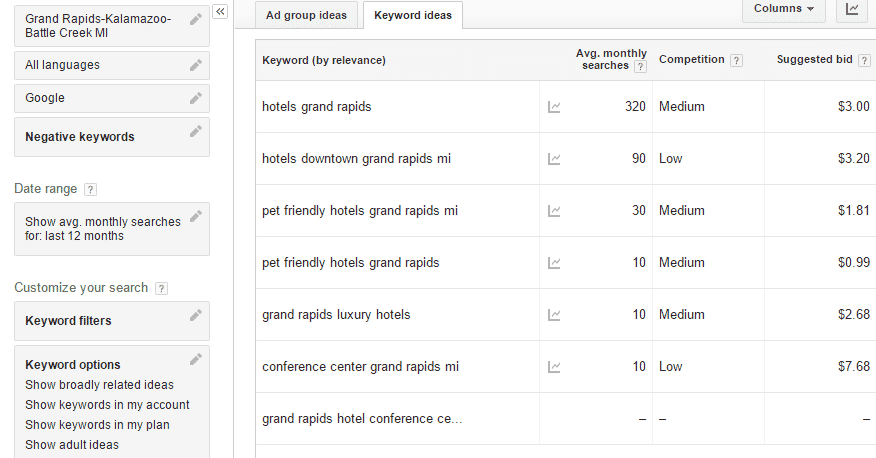Last Updated on January 5, 2018 by Adam Henige
One of the most important SEO strategies is keyword targeting. Choosing the right keywords for your website will not only help your webpages rank better in search engines, but can also increase your site visitors and conversion rates. When choosing your target keywords, it is important that the keywords are relevant, searched often, and will be useful for your audience. If you aren’t sure where to begin when choosing your keywords, then keep on reading for how to target keywords for SEO.
Keywords Relevant to Page Content
Search engines are smart. This means that they will know if the content on your page is relevant to the user’s search. If your keywords don’t match up with the products you sell or services you offer, then this can actually hurt your rankings. Therefore, you want to make sure that the keywords you target are relevant to your landing page. Start by taking a look at your website and the pages that you want to optimize. Then begin creating a keyword list with the general products and services that you offer. These will be your core keywords.
Keyword Research
Once you have a good list of core keywords your next step will be keyword research. Here you will want to see if people are searching for the keywords you plan to target. Google Keyword Planner is a very useful tool that shows you the average monthly search for each keyword. In Google Keyword Planner you can also pick a specific location and see the monthly search volume for that location.
Your next step for keyword research will be to brainstorm long-tail keywords. Long-tail keywords are keyword phrases that are very specific to whatever you are selling. For example, you are a hotel in Grand Rapids, Michigan that is pet friendly, located downtown, offers luxurious amenities, and also features a conference center. Here is an example of long tail keywords you could target:
- Pet friendly hotel Grand Rapids
- Grand Rapids hotel with conference center
- Hotel downtown Grand Rapids MI
- Grand Rapids luxury hotel
Focus on unique services, amenities, and products that your company offers to create a stronger long-tail keyword list that people search. Google Keyword Planner is also useful when searching for long-tail keywords or new keyword ideas. Another great tool to use to help you with long-tail keywords is Keyword Tool. For more keyword generator tools and methods click here.
The image below is an example of using Google Keyword Planner for keyword research. On the left of the image you will see that we are targeting “Grand Rapids-Kalamazoo-Battle Creek, MI” and on the right is the average monthly search volume for each keyword.

An important thing to remember is that not every keyword you pick needs a high search volume. If a keyword you want to target isn’t searched often, but it is relevant to your landing page you might still want to target that keyword because it could end up ranking well for those who do search for it.
Choosing your Target Keywords
Once you have completed your keyword research it is now time to pick which keywords you are going to target on your website. A good rule-of-thumb is to never target more than three keywords on each page that you are optimizing. Also, never target the same keyword on multiple pages, because then those pages will be competing for rankings on search engines. Each web page should have its own unique target keywords which you will use on your page title, meta description, headings, and body content. To learn more about how to integrate your target keywords onto your webpages click here. After you have successfully added your target keywords onto your website you will be one-step closer to achieving SEO success.

Leave a Reply